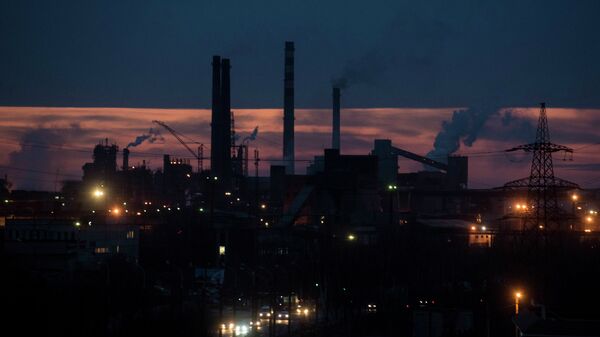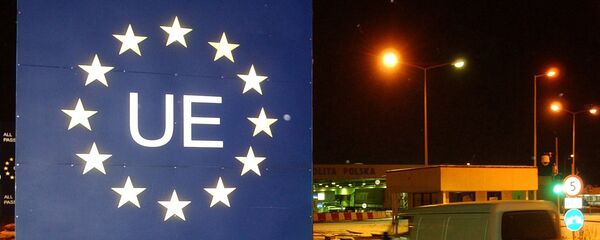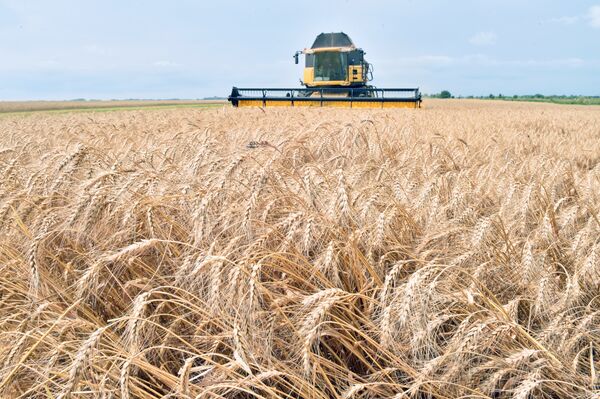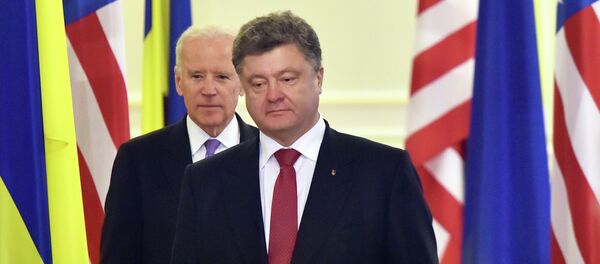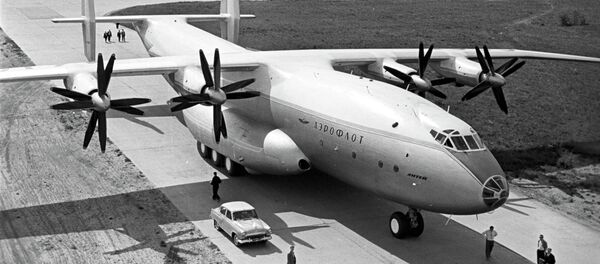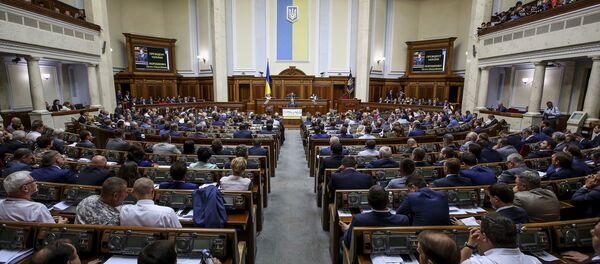Ukrainian economists are not surprised by these results. Speaking to RIA Novosti, they explained that Kiev had held completely unrealistic expectations for the trade agreement from the very beginning. Furthermore, they said, Ukraine's exports to Europe consist mostly of raw materials with low added value, and that the price of these continues to slide. Finally, Ukraine's agricultural producers are having an increasingly difficult time competing in Europe's highly subsidized market. European countries have only enhanced these subsidies following the closure of the Russian market to their goods.
For Ukrainian producers, the EU-Ukraine FTA effectively stepped into force in the spring of 2014, when Brussels agreed to provide Ukrainian businesses with certain trade preferences on European markets. But it was the comprehensive deal which went into effect in 2016 which finally granted European companies free access to the Ukrainian market.
The EU-Ukraine deal was accompanied by an effective collapse in trade and economic relations between Ukraine and Russia, with whom Kiev had maintained strong economic ties for over two decades following the collapse of the Soviet Union. Soon after the Maidan coup d'état in early 2014, when Kiev penned the agreement with the EU, Moscow was forced to freeze its own comprehensive trade agreement with Ukraine, and eventually to limit the free transit of Ukrainian goods through Russian territory to other Commonwealth of Independent States countries.
According to Ukraine's State Statistical Service, the first nine months of 2016 saw Ukrainian exports to the EU grow by 4.4%, to $9.7 billion (37.3% of total exports), while imports from Europe jumped 7.3%, to $12 billion (43.9% of total imports).
Paradoxically, experts noted, these statistics remain far below the figures from before the EU-Ukraine FTA stepped into effect. Between January and September 2013, the last full year before the country's political crisis began, Ukraine's exports to the EU amounted to $11.9 billion, and imports stood at a whopping $19.3 billion. At the time, the European Union accounted for 26.5% of Ukraine's total exports, and contributed 35.1% of its total imports.
Over the same period, trade with Russia has virtually collapsed. In the first nine months of 2016, Ukraine's exports to its eastern neighbor fell 30%, to a paltry $2.5 billion, while imports dropped by 34.3%, to $3.6 billion. Russia now accounts for just 10% of Ukraine's total exports, and 13% of imports. Two years earlier, Russia was Ukraine's largest trading partner. In the first nine months of 2013, Ukraine exported $11.4 billion worth of goods to Russia, and imported $16.4 billion. Russia accounted for 23.8% of Ukraine's total exports, and 30.2% of imports.
Ukrainian economist Andrei Blinov told RIA Novosti that "during the euphoria that followed the Maidan, many proponents of European integration were saying that our exports to Europe would increase several fold thanks to the FTA, and that this would fully cover the loss of the Russian and CIS markets." Basically, these proved to be completely unfounded declarations, the economist noted.
Researcher Oleg Ustenko, who works as the director of the Blazer International Fund, an independent NGO which specializes in studies of the Ukrainian economy, echoed his colleague. Ukrainian authorities, he said, were looking at the EU-Ukraine FTA through 'rose-colored glasses'.
"If we look at the structure of our exports to the EU, we can see that in large part these are products with a low added value. Mainly, we sell raw materials," Ustenko explained. The researcher stressed that Ukraine's high-tech, high value-added products, like metallurgy, aerospace engineering, and machine building are not competitive in Europe, nor are they welcome there.
Blinov noted that after losing the Russian market, European producers lost out on billions in revenue, their output remaining in Europe, and producers unable to quickly reorient to other markets. Accordingly, he said, "we have seen that in this situation, Europe strengthened protectionism…thus limiting the access of goods from other markets, including Ukraine."
As if things weren't bad enough, global prices for raw materials have been falling, Blinov said. "Over the past years, prices on world commodity markets have dropped by approximately half compared with the period before mid-2015, and Ukraine, as a key exporter of raw materials and semi-finished goods, has of course been very much affected by this, as have all commodity-producing countries."
Meanwhile, Brussels' promises to expand quotas for duty-free imports of Ukrainian agricultural goods also haven't turned out as expected, with producers complaining that many of the quotas remain miserly low, and are filled in a few months' time, while Brussels refuses to ease quotas on other goods due to a lack of expensive licenses. Quotas have increased Ukrainian food exports to EU markets by just $300 million between 2015-2016, from $2.6 billion to $2.9 billion total.
According to Ukrainian agribusiness analyst Dariya Gritsenko, the main obstacle for a more substantial growth of exports is certification, with Ukrainian producers unable to obtain costly European quality and safety certificates for high value-added goods like meat and dairy products. Another, broader problem, she said, is that even where quotas are not an issue, Ukrainian manufacturers are having a difficult time finding buyers.
Finally, analysts said that the expected spike in foreign investment into the Ukrainian economy after the introduction of the free trade agreement has also failed to take place. According to state statistics, in the first nine months of 2016, foreign investment grew by $2.6 billion compared with the same period in 2015, to a total of $45.2 billion. Most of this investment came from Cyprus, however. Accordingly, experts suggest that most of this figure was actually the capital of Ukrainian oligarchs who use Cyprus and other EU member countries as offshore safe havens for their wealth, occasionally injecting portions into lucrative sectors of the economy.
Effectively, observers say, nearly all the benefits of an EU-Ukraine trade agreement promised by Kiev and Brussels officials have failed to materialize. Meanwhile, Ukraine's traditional economic links with Russia have been left in tatters. With the country now left to cope with its humiliating newfound status as a raw materials appendage, Kiev has been left in the unenviable position of having to answer for its failed promises of a EU-sponsored Ukrainian economic miracle.

